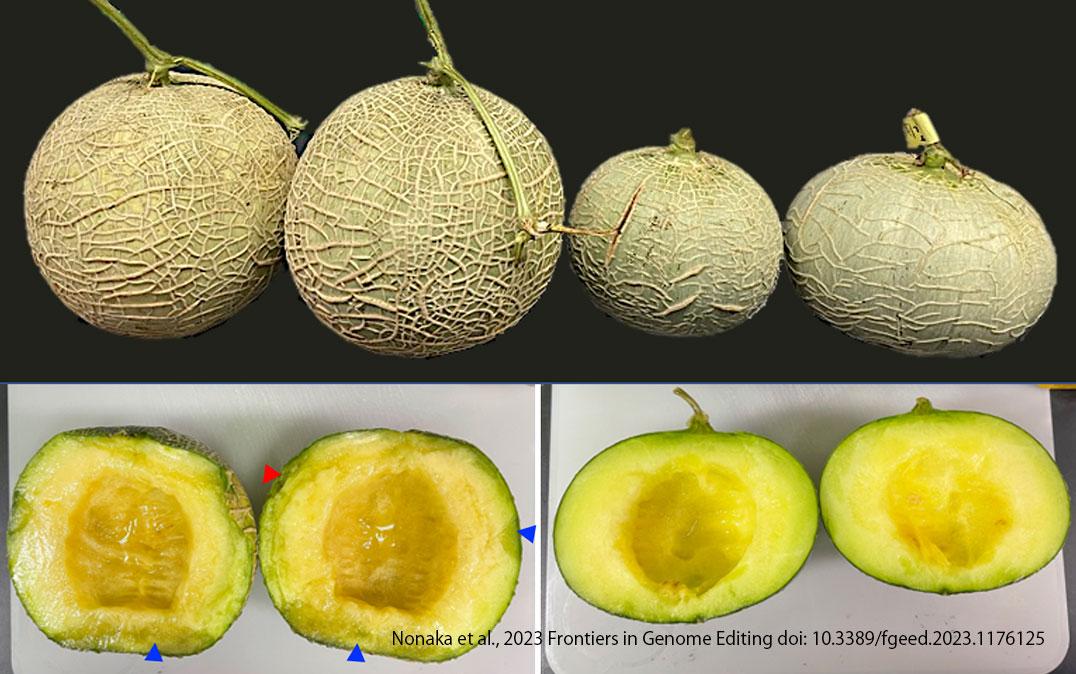Research News
Modifying Shelf-Life of Melons via Gene Editing

Researchers from the University of Tsukuba used the gene editing technology to create melons with a shelf-life 14 days longer than that obtained previously. Such a technology might reduce food loss and waste and contribute to the sustainability of the global food system.
Tsukuba, Japan—The gaseous plant hormone ethylene has been long known to promote fruit ripening and play a certain role in shelf-life. In this study, the researchers performed gene editing using the (Clustered Regularly Interspaced Short Palindromic Repeats (CRISPR)/Cas9 system via modification of the ethylene synthesis pathway in the Japanese luxury melon (Cucumis melo var. reticulatus "Harukei-3") to increase its shelf-life.
The enzyme 1-aminocyclopropane-1-carboxylic acid oxidase (ACO) is associated with the final step of the ethylene production pathway and has multiple homologous genes. The research group has previously demonstrated five CmACO genes (homologous genes of ACO) in the melon genome and shown that the CmACO1 gene is predominantly expressed in the harvested fruit. Therefore, we expected that CmACO1 would be an important gene for enhancing the preservation of the melon fruit. In this study, we selected CmACO1 as a target of gene editing and attempted to introduce mutations in the gene. Consequently, the harvested melons exhibited no foreign genes and the mutations induced were inherited for at least two generations. In the non-gene-edited line (wild type), ethylene generation was observed in the fruit 14 days postharvest, the rind turned yellow, and the flesh softened. However, in the genome-edited mutant, ethylene generation was reduced to one-tenth of that in the wild type, with the skin color remaining green and the fruit remaining firm. This indicates that introducing CmACO1 mutation via gene editing enhanced the shelf life of the melons. The results of this study indicate that gene editing can contribute to food loss reduction and improve food security.
###
This work was supported by Cross-ministerial Strategic Innovation Promotion Program (SIP), "Technologies for Smart Bio-industry and Agriculture " (funding agency: Bio-oriented Technology Research Advancement Institution) to HE.
Original Paper
- Title of original paper:
- Targeted modification of CmACO1 by CRISPR/Cas9 extends the shelf-life of Cucumis melo var. reticulatus melon
- Journal:
- Frontiers in Genome Editing
- DOI:
- 10.3389/fgeed.2023.1176125
Correspondence
Professor EZURA Hiroshi
Assistant Professor NONAKA Satoko
Tsukuba Plant Innovation Research Center (T-PIRC) / Institute of Life and Environmental Sciences, University of Tsukuba
Related Link
Institute of Life and Environmental Sciences
Tsukuba Plant Innovation Research Center (T-PIRC)





